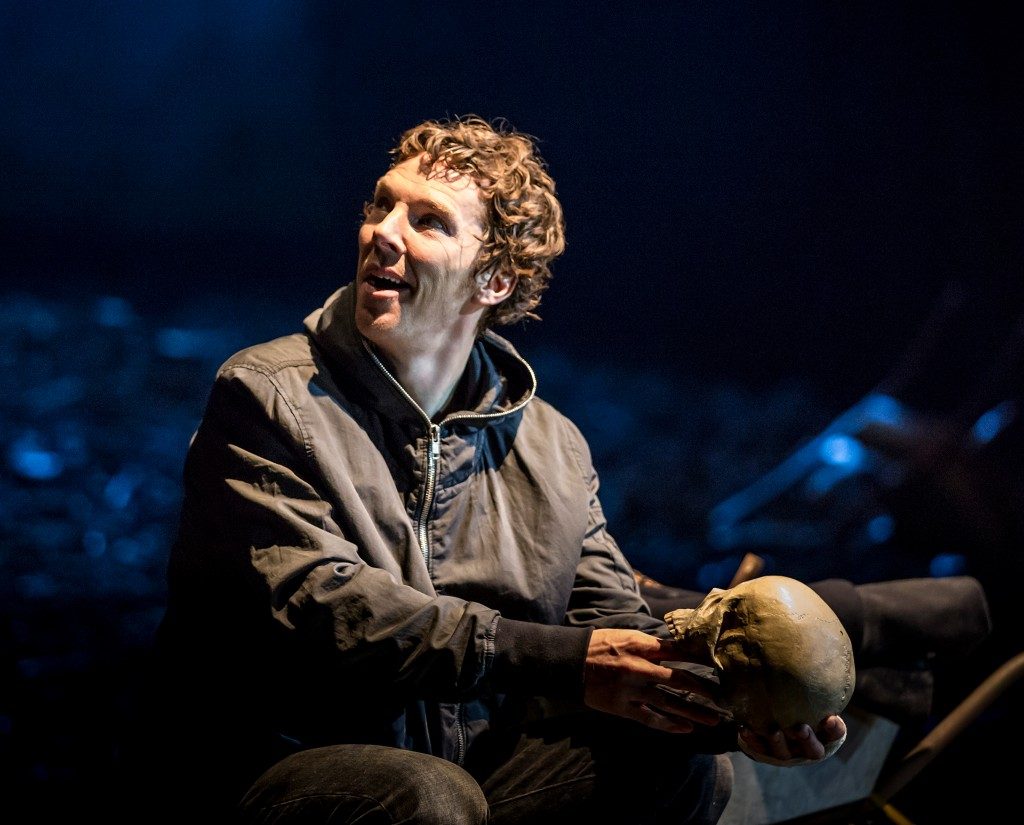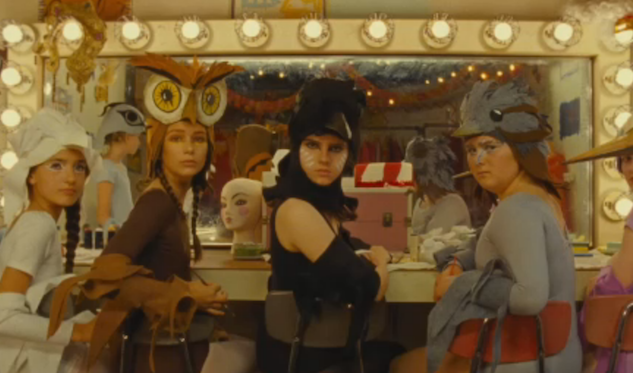
Redefining ‘Hamlet’ in National Theatre Live’s production
By Adam Tatelman, Staff Writer
The difficult thing about performing Shakespeare is finding a new and relevant way to present plays that have been produced for over 400 years. Given the archaic Elizabethan language, it can be difficult to present even the most universal of dramatic conflicts to a modern audience and still keep them interested. With Hamlet being an existential hero whose conflict is internal, he is consequentially one of the most difficult characters to make dynamic and entertaining. Surely, they say, it is hubris to think that any actor can reinvent the character after so long. Well, they didn’t count on Benedict Cumberbatch.
Hamlet, Prince of Denmark, is deeply depressed following the death of his father, the King. His uncle, Claudius, has married the King’s widow and Hamlet’s mother, Gertrude, and now rules Denmark. Hamlet’s father appears to him as a ghost, claiming that Claudius murdered him and commanding Hamlet to take revenge. Unsure of what is real or what course of action to take, Hamlet courts vengeful rage and suicidal guilt as the Norwegians prepare for war with Denmark.
People get turned off of Shakespeare because they think they need a scholarly understanding of the language, but Shakespeare wrote all his plays to appeal to the highest dukes and the lowliest peasants alike. It’s the actors’ job to show you what the characters are going through even if you don’t fully understand the words, and the folks at NTL are some of the best in the world at doing exactly that.
Some Shakespearean directors have been less than impressed with Hamlet. Collectively, they believe that Hamlet the character is not compelling because of his inertia. One of these directors, Charles Marowitz, directed a version of the play that cast Hamlet as a comical, childish figure. As Hamlet, Cumberbatch boldly courts that interpretation, redefining it as a coming-of-age story where life in isolation is the only alternative to the certain death that comes with personal growth and change.
None of the performances in the NTL production feel antiquated or romanticized. In fact, they are quite cynical. Claudius’s (Ciarán Hinds) repentance feels self-serving: he’s only sorry because he got caught. Gertrude (Anastasia Hille) is just the opposite: the weight she carries is palpable. Laertes’ (Kobna Holdbrook-Smith) grief over his sister’s fate consumes him savagely. Ophelia’s (Sian Brooke) descent into madness seems like actual schizophrenia.
These performances are reinforced by the set design. As the night watchman said, “Something is rotten in the state of Denmark.” The set, a beautiful replica of a modern palace interior complete with branching rooms and balconies, is unceremoniously destroyed when the Norwegians approach. It feels like someone dropped a bomb when, at the intermission, all the doors fly open and a storm of dirt coats the stage.
This end-of-days design is compelling, and it makes for many memorable moments. During Hamlet’s many soliloquies, the rest of the cast continues their action in the background, greyed out and moving in haunting slow motion. When the Ghost leaves the stage, he seems to melt into the shadows on the floor thanks to some clever lighting. In the final act, the destroyed stage becomes equal parts battlefield, bombed-out castle, and graveyard—especially so in the final moments, where most of the cast lays dead on the ground.
This play is a testament to the power of reinvention—the human ability to make something old new again. Even if you’ve never seen a Shakespeare play, you owe it to yourself to take advantage of the rare and limited opportunity NTL has given us to see how they do theatre across the pond.

